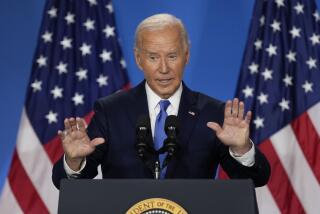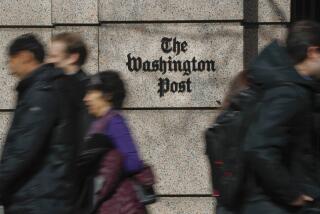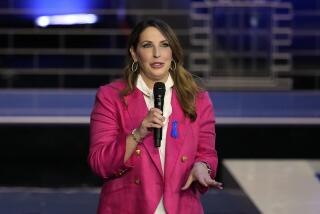Robert Gibbs (and predecessors) reflect on the role of press secretary
WASHINGTON — With his days numbered as the public face of the White House, Robert Gibbs has few regrets about his more than two-year tenure behind the podium in the James Brady Briefing Room.
That’s not to say he isn’t conceding his share of mistakes.
“If you do a job for a specific amount of time and look back and say you wouldn’t have done anything differently, you probably haven’t spent a lot of time thinking back about what you did,” he said Tuesday. “I take my transcript home every night and I read my transcript. And … there [isn’t] a time in which I’ve read that transcript and I thought, ‘Wow, perfect. I did it all just right.’”
Gibbs is leaving the White House after this week to do some private consulting, but expects to continue to provide occasional counsel to a president he’s served for nearly seven years, long before an improbable run for the White House.
Jay Carney, a former Time magazine Washington bureau chief and currently the communications director for Vice President Joe Biden, will take his place. Gibbs said he and Carney have been chatting regularly about the transition, but he declined to share any advice he’s given him publicly.
“But we — Jay and I have talked a lot about the importance of this job,” he shared. “In a country like this, it will long outlive the personality of myself, just as it long outlived the personalities that came before me and will long outlive who comes next.”
Gibbs pointed to the situation in Egypt – one of the other major topics of this week’s Q-and-A sessions – in discussing the significance the job.
“[This] is happening and people are watching it, not just throughout this country, but throughout this world, and your questions and my answers are being translated in languages that are spoken in continents far away,” he said. “I think it demonstrates the importance of a strong freedom of the press, a sharing of information.”
Gibbs’ predecessors offer similar insights on a job that is often the hottest seat in Washington, particularly in the new media era, two decades after briefings began being televised in their entirety.
“It was an idiot who allowed the cameras to go in there,” Mike McCurry, press secretary for President Clinton, joked of his own decision to allow cameras in for the full briefings. “Good idea in 1995. Bad idea when Monica Lewinsky came along.”
McCurry spoke Monday night with three other White House spokesmen during a forum hosted by George Washington University.
Dana Perino, President George W. Bush’s final press secretary, talked of the unique and seemingly contradictory roles of the person who holds it.
“Every day you see the press secretary defending the president at the podium. What you don’t see, and what I did a lot of … is defending the press to the president and to the senior staff,” she said. “One of the most important roles of the press secretary in my opinion was to protect the role of the press. To remember that they had a job to do.”
Just last week, the White House Correspondents Assn. wrote to Gibbs “protest in the strongest possible terms” the limited access reporters had to the president and senior staff as the crisis in Egypt unfolded. But Gibbs has also jumped to the press corps’ aide, particularly in fighting for access on overseas trips.
Gibbs has had another role that some of his predecessors did not, that of a senior counselor to the president. Dee Dee Myers, Clinton’s first press secretary, said that is not necessarily the model the White House should want to see live on.
“You can’t alienate any of the constituencies,” she said, something that is difficult if you’re helping shape policy internally and selling it publicly.
Ari Fleischer, the first press secretary for President George W. Bush, said Carney’s background in the fourth estate will be of use to him in his new role — to a point.
“When you’re a journalist, every instinct, every skill you have is to cover the news, which really is different than selling the news or promoting your boss,” he said. “This is going to test him now, to see how quickly and ably under fire he can make that transition.”
Gibbs’ final briefing is scheduled for Friday.
More to Read
Get the L.A. Times Politics newsletter
Deeply reported insights into legislation, politics and policy from Sacramento, Washington and beyond. In your inbox three times per week.
You may occasionally receive promotional content from the Los Angeles Times.







